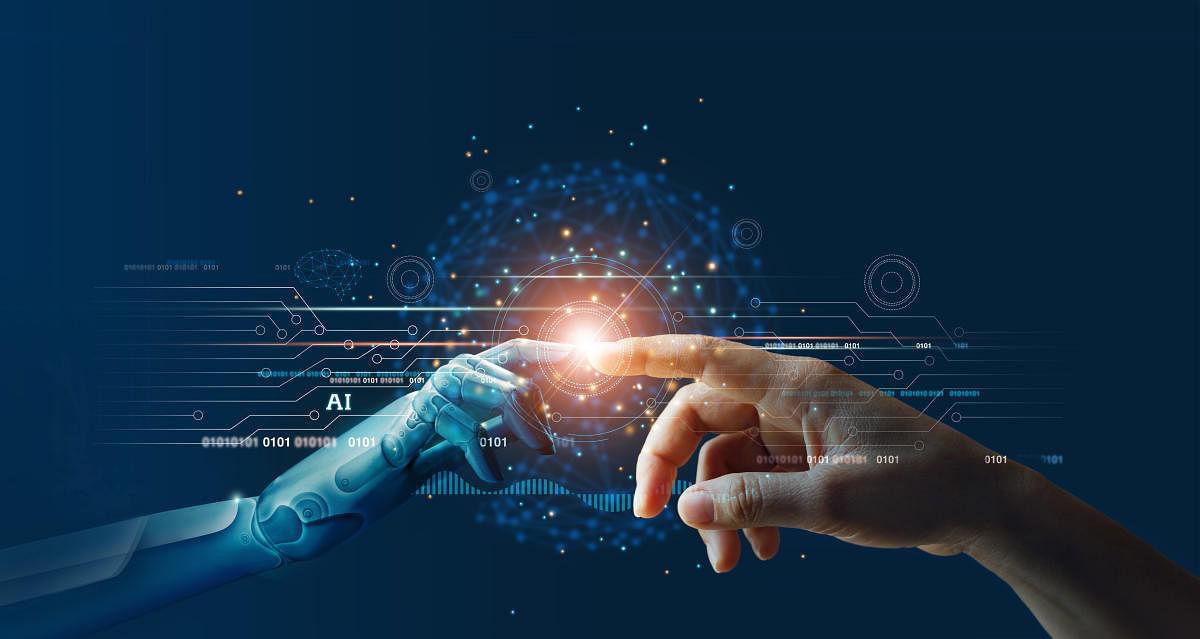AI is the new Electricity,” said Andrew Ng — a pioneer in AI research. A confluence of factors —exponential computing power, new deep learning techniques and an abundance of data, contributed to this new dawn.
Is AI on its way to becoming as ubiquitous as electricity? Chances are that you’ve already encountered AI-powered algorithms today. It could be on the back end of your ride-sharing app that routes drivers in the most efficient fashion. Or the intelligent chatbot on your bank app that can answer basic questions; deferring to humans on the more complex ones (while also understanding your sentiment).
If you work in an intelligent factory, then an actual robotic arm (Robotic Process Automation or RPA) takes care of repetitive and heavy tasks, while humans perform functions that require fine motor skills.
When AI first appeared to have viable business applications, its primary use case appeared to be to displace human workers. It is certainly true that many companies have used AI to automate processes. However, a research study published in the Harvard Business Review found that automation only created short-term productivity gains.
Research involving 1500 companies found that the most significant improvements were found when humans and machines worked together. Each brings unique capabilities. Humans bring creativity, teamwork and leadership. AI algorithms are prediction machines – capable of analysing vast amounts of data and spitting out predictions at unparalleled speed and scale.
So, when you find yourself working with an intelligent system, how do the rules change?
Be human: Characteristics that are uniquely human – judgment, empathy, communication and collaboration cannot be replicated by AI. Paul Hurlocker, CTO and AI expert, presciently states “AI can enhance our lives, but presently it’s only better than humans at performing narrow tasks that can rely on large-scale data and compute to recognize patterns that would otherwise be difficult for humans.”
Focus on unique human traits to solve higher-order problems, while leveraging AI’s speed, scale and computation capabilities. At the same time, it is essential to recognise the limitations and best uses of AI. Blind trust in AI-based decisions; without applying judgement, empathy and subject matter expertise doesn’t serve anyone.
Companies that put the power of “collaborative intelligence” will win in the long term.
Understand data sources: AI algorithms are trained over vast quantities of data in order to perform their intended tasks. Skewed or missing data can be injurious, particularly when AI is used to make life-altering decisions like medical diagnoses, loan applications and self-driving car manoeuvres. Upholding ethical norms, such as ensuring data privacy, inclusivity and accuracy, is an important function only humans can perform.
Explaining: In 2016, Dr Geoff Hinton (popularly considered the “father of deep learning”) declared that there was no need to train radiologists anymore. In five years AI would read medical scans more accurately than humans. It is true that AI algorithms can absorb vast amounts of data (orders of magnitude more than humans can consume). Regardless, I can’t think of a single individual who would accept an AI diagnosis without the comfort and hand-holding of a doctor. And it’s not just for medical applications.
AI algorithms are increasingly using opaque techniques to reach conclusions (black-box problems). Some approaches include modifying algorithms to include “bread-crumbs” about why they made a particular choice. However, that slows down processing speed. Human “explainers” are necessary intermediaries. Regulation is fast evolving. GDPR (the EU’s Data Protection regulations) allows a citizen to ask for an explanation of algorithmic decisions. Being able to explain AI-based decisions such as credit card or mortgage rates, is going to be an important new function.
Upskilling: Every major technological shift results in jobs becoming obsolete. Think about carriage manufacturers, with the advent of the automobile. At the same time, whole new job categories are created. This “creative destruction” is inevitable. As is the case with previous revolutions, those that embrace the new technology in order to enhance their current work make themselves invaluable to their organisations. Life-long learning and exploration are essential to avoid becoming a dinosaur.
It is estimated that AI will add about $13 trillion to the global economy in the next decade. At an individual level, this implies expecting to perform different tasks OR the same tasks in different ways. Basic things that come naturally to humans (e.g. interpreting emotional state) are extremely difficult for machines. Conversely, those that are trivial for machines (analyzing gigabytes of data) are virtually impossible for humans. Taking advantage of each unique skill via collaborative intelligence will ultimately benefit humanity. Will you be an intelligent collaborator?
(The author is a global social entrepreneur and philanthropy expert)
